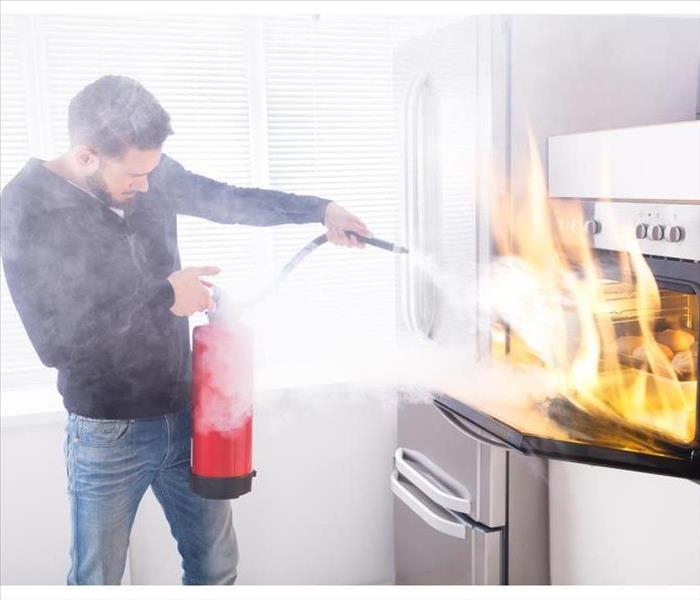Things to Know in Advance of a Grease Fire
7/16/2019 (Permalink)
Things to Know in Advance of a Grease Fire
Few home events cause the sort of panic that a kitchen fire will. You’ll only have seconds to react. How you respond could mean the difference between getting away with minimal damage or losing the entire house. Since the kitchen is typically used multiple times a day, the chance of a fire on the stove at some point is pretty good. All fires are not alike, which means that a method of putting out one fire may not work for another fire, and may even make it worse. Here are some things to know in advance of a grease fire.
1. Do Not Use Water
Oil and water don’t mix; water is denser than oil. When water is poured onto burning grease, it immediately goes under the grease and evaporates, taking some of the grease particles with it, and spreading the fire even further.
2. Snuff Out Fire with Pot Lid
A pot lid or baking sheet, if used soon enough, can stop a grease fire before it really has a chance to get started. Don’t remove the lid until everything has completely cooled off.
3. Turn Off Ignition Source
As soon as the fire is under control enough that you can reach the knob, turn off the ignition source.
4. Choose Baking Soda or Salt
Baking soda and salt remove the oxygen a fire has to have to burn. These retardants are particularly effective in smaller fires.
5. Reach for the Fire Extinguisher
For a less manageable residential grease or oil fire, a Class B extinguisher is necessary. This is a dry chemical extinguisher made for smothering a fire originating from combustible gases or liquids. The use of a fire extinguisher will result in a lot of cleanup, so you might want to make this a last resort.
When a grease fire occurs at your home in Orlando, FL, do everything you can to extinguish the fire and minimize damage. At this point, you might want to consult fire damage restoration professionals to handle your fire cleanup needs.






 24/7 Emergency Service
24/7 Emergency Service
